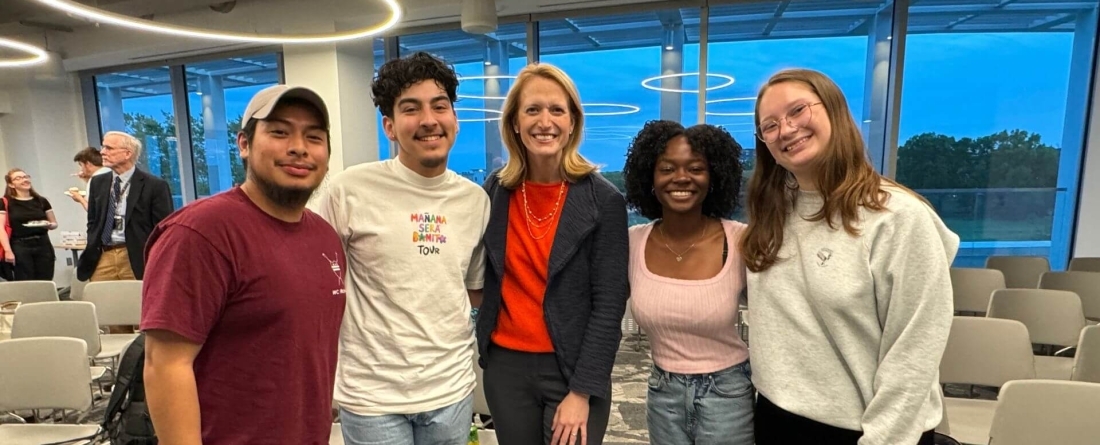
The Maryland chapter of the American Society for Public Administration (ASPA) welcomed Maryland’s 34th comptroller, Brooke Lierman, at Thurgood Marshall Hall. Lierman discussed her work on Maryland's first State of the Economy report and shared insights into her role as comptroller.
Reflecting on her college experience, Lierman initially struggled to choose a major but ultimately focused on history with a concentration in social movements. Despite her unconventional path, including attending law school and working on campaigns, she found her way to becoming comptroller.
In her position, Lierman oversees all financial transactions and revenue estimates. She highlighted her involvement in various fiscal-related boards and systems, such as the State Retirement and Pension System and the Board of Public Works. Additionally, Lierman emphasized her role as the state's revenue administrator, responsible for collecting taxes and processing millions of returns annually.
“I love the job, it's amazing. I'm really excited to be doing this work,” said Lierman.
Under Lierman's leadership, the Maryland Comptroller's Office has implemented initiatives to improve government engagement and public outreach. They have appointed an intergovernmental affairs director to assist local governments and established an Office of Public Engagement to connect with communities statewide.
My job is to be a leader and help put the agency on a path for success. ... It is to make sure that we are setting up systems in place, getting the funding we need so that the people who are there are skilled enough to do their jobs and serve well.Brooke Lierman
“My job is to be a leader and help put the agency on a path for success,” said Lierman. “... It is to make sure that we are setting up systems in place, getting the funding we need so that the people who are there are skilled enough to do their jobs and serve well.”
The agency's top priorities include improving government operations by modernizing outdated systems, such as tax processing and accounting, to better serve businesses and families. They also aim to distribute resources more effectively to support small businesses and communities across Maryland.
“We're really focused on making sure the agency is working better, getting resources out to the public, thinking about our economy in a new way and reporting on that data,” said Lierman. Discussing the importance of communicating revenue projections and addressing concerns about future economic risks, she emphasized, “We are doing these reports so that the governor or the general assembly policymakers, local government officials have this data so that they can use it going forward.”
Maryland faces a unique challenge with a surplus of job openings compared to job seekers, with three openings for every one seeker within the state. However, the labor force participation rate has declined since the pandemic, resulting in a loss of approximately 181,000 workers. Factors contributing to this decline include physical and mental health issues, particularly concerning addiction and depression, as well as challenges such as the high cost of childcare, which has led to a significant decline in women's labor force participation.
In addition to addressing economic challenges, Lierman's office released a policy brief on immigration, highlighting the significant contribution of immigrants to the state's workforce and economy. Immigrants make up over 16% of Maryland's population and 20% of its workforce, playing crucial roles in various industries including STEM, healthcare and construction. However, immigrants face barriers to entry, such as difficulty utilizing their professional skills obtained abroad. The office aims to address these challenges and provide policymakers with data to inform decision making.
“How do I want to live my life? I think that's a question you can ask yourself every day and every year to think about how you want to live your life,” said Lierman. “Public service and doing this work right now for me is how I want to live my life.”
